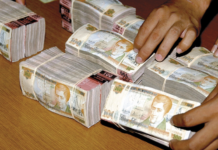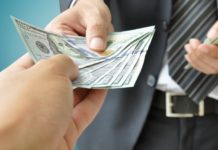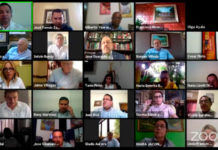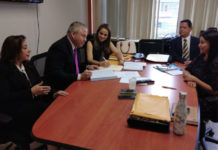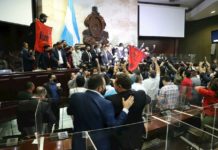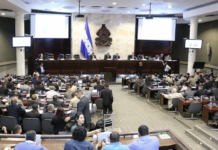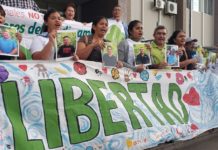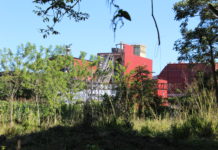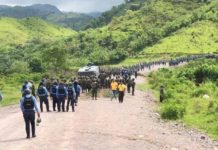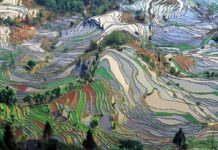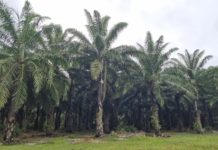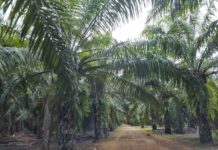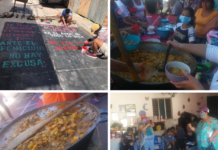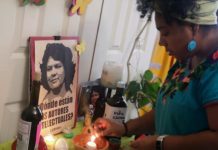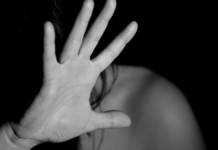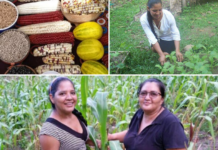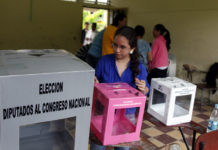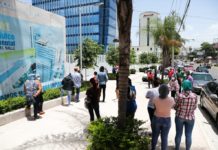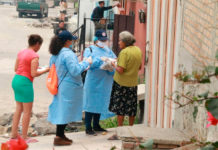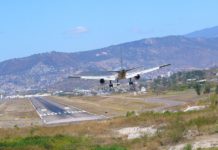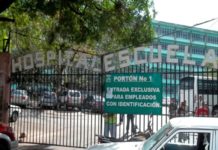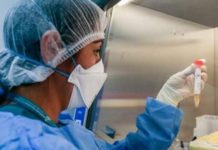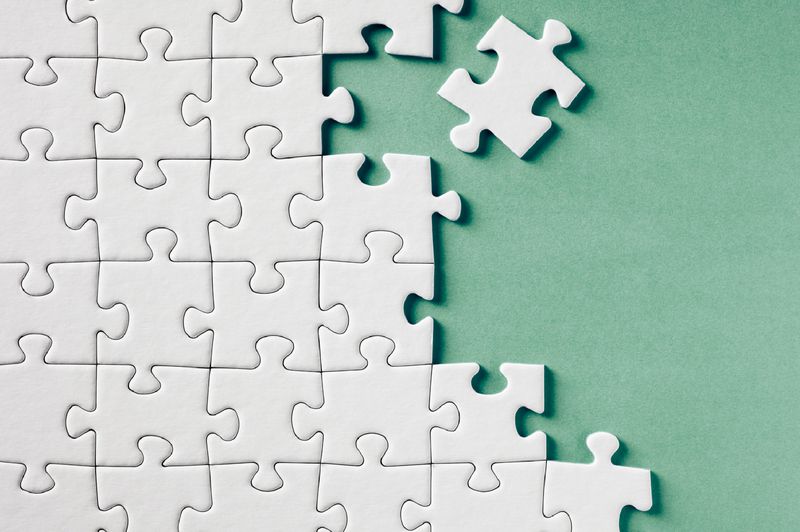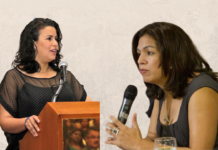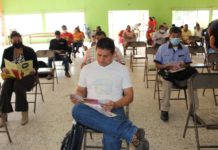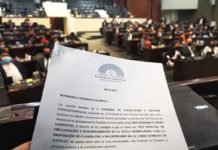Document author: Gustavo Irías
Translation: Karen Spring
The purpose of this special report is to provide an overview of the current situation in Honduras a few days before the general elections on November 28th, a contest in which the new president of the country, 128 deputies of the National Congress, as well as 298 municipal corporations will be elected. This is an electoral process that will undoubtedly mark the historical future of Honduran society for the next decade.
I) Introduction
In the run-up to the general elections of November 28 (28N), the debate is intense among the various political forces, regarding the continuity of the current authoritarian political regime or its replacement by a new regime that restores democracy and opens a new phase in the political history of the country. There have been twelve (12) continuous years of government by the conservative National Party of Honduras (PNH).
This situation goes unnoticed by the international press. This is not accidental because Honduras, throughout its history, has been conceived as a marginal place in the sub-region, even in the eighties, when it was affected by the military occupation of various foreign forces (the US and Salvadoran army and the Contras). In addition, it is a country that has been characterized by being behind in the events of history. So much so, that the current political contest has much in common with the dispute that characterized its neighbors in the eighties, against dictatorships and for democracy, with the difference that now the essential tool is not bullets but votes.
The origin of the current Honduran situation is not recent, it dates back to the June 28, 2009 coup d’état, the first successful one in Latin America in the 21st century, when the interests of a conservative and voracious political elite were imposed, opposing the minimal reforms of an extractivist model that concentrates wealth in the hands of a few. Since then, the State has been used by the elite as a loot bag to drain resources, evade tax burdens and use its repressive apparatuses to serve their interests. An immensely wealthy elite[1] has built a country with the greatest poverty and inequality in all of Latin America.
Since the coup, there has been a process of remilitarization of the State and Honduran society. The military once again positioned itself as the central actor in public management, a role institutionalized through the National Defense and Security Council (Legislative Decree # 239-2011[2]). A central aspect is that public security has been militarized through the creation of the Military Police of Public Order (PMOP), which, with an initially temporary period, has ended up permanently taking over security tasks.
Likewise, all the powers of the State have been concentrated in the Executive branch. This concentration, in principle, has operated through the so-called Law for the Optimization of Public Administration (Legislative Decree # 266-2013[3]), a regulation by which the National Congress has relinquished its own functions, delegating them to the Executive branch, including the power to «create, modify or suspend the Secretariats of State or Decentralized Agencies and Entities». In general, there has been a dismantling of the republican rule of law[4] and its logic of functioning, based on the independence and counterbalance of the different branches of government.
However, the process of de-democratization that Honduras has suffered in the last 12 years is more serious than what has been described so far. Sheltered by the crisis provoked by the constitutional rupture of 2009, drug trafficking groups, present in the country since the seventies, escalated their actions from local spaces to national public institutions, controlling segments of these institutions and influencing, through illicit financing, the results of national and local elections. There is ample evidence that the group currently in power, presided over by Juan Orlando Hernández, has been implicated in various corrupt activities, including drug trafficking[5].
This dynamic has reconfigured the Honduran elite, to the extent that a sector of that segment of society, in recent months, has distanced itself from and broken with the current regime, forming a framework in which they have been financially disadvantaged, with unequal rules of the game of competition, in which the big beneficiaries have been the sectors linked to the corruption networks. This reconfiguration is expressed in the current electoral dispute, with a business sector that has joined the opposition forces in the bid to put an end to the current National Party government.
The current political regime in Honduras is not a classic military dictatorship, although the widespread infringement of democratic freedoms (freedom of expression, association, and peaceful protest) is similar to such type of dictatorship. In reality, it is more of an electoral autocracy led by Juan Orlando Hernandez in the last 8 years. In this autocracy, elections have certainly continued to be held every four years, but they have been of very low quality, that is, very far from international standards of transparent, competitive, fair and peaceful elections. This has been a regime devoid of democratic practices, in which civic space has been reduced to its minimum expression.
II) From the electoral fraud of 2017 to the current situation
The last elections in Honduras, in November 2017, were fraudulent, an extreme that was recognized by the Organization of American States’s (OAS) observation mission, an entity that in the end retracted to align with US hegemonic interests. On December 17, days after the election, a communiqué from the General Secretariat indicated that «having received the Preliminary Report of the Electoral Observation Mission in Honduras[6], as well as the report on compliance with the recommended stages of the verification process, the General Secretariat of the OAS cannot give certainty regarding the outcome of the elections held on November 26. Adding: «As already reported by the EOM [Electoral Observation Mission], the electoral process was characterized by irregularities and deficiencies whose entity allows us to qualify it as of very low technical quality and lacking in integrity»[7].
Based on the above, Luis Almagro concluded: «For all the above reasons, and given the impossibility of determining a winner, the only possible way for Honduran people to be the winner is to call another general election, within the framework of the strictest respect for the rule of law, with the guarantees of a TSE that enjoys the technical capacity and confidence of the citizenry and political parties.
In these elections, there were mainly two political forces, the ruling National Party, with Juan Orlando Hernández, and the Opposition Alliance Against Dictatorship, represented by Salvador Nasralla.
This fraud sparked intense popular protests and serious human rights violations. According to the report of the Office of the United Nations High Commissioner for Human Rights (OHCHR), between November 26, 2017 and January 27, 2018, «at least 23 people were killed, including a police officer; around 60 people were injured, half of them with lethal ammunition. Between December 1 and December 5, 2017, at least 1,351 people were detained for violating curfew» [8].
In that sense, the last period of the government of Juan Hernández, inaugurated in January 2018, has lacked legitimacy of origin, and has been strongly questioned by broad social and political sectors that have demanded his departure from power, in a period marked by political instability and the contestation of democracy. In these circumstances, it is not surprising that the possibility of another fraud haunts the elections on November 28.
The elections will take place in a very complex context, marked by a multiplicity of crises, fueled by the bad governments of 12 years, by the COVID-19 pandemic and by the effects of the recent hurricanes Eta and Iota. The most relevant elements of this pre-electoral context are the following:
- Economy and employment. The growth rate of the Gross Domestic Product (GDP), in 2020, experienced a dramatic fall of -9.0%, aggravating the chronic precariousness of the labor market. Open unemployment has doubled, reaching 10% of the Economically Active Population (EAP), and underemployment, that is, precarious work, has grown from 60% to 70% of the EAP. More than 450,000 people have lost their jobs and 600,000 have declared themselves discouraged (they need work, but are not looking for more because they cannot find opportunities). The most affected sectors have been agriculture, commerce and education[9].
- Poverty and extreme poverty. In this framework, poverty has increased from 59% of the total population (2019), to 74% by the end of 2020. The number of households affected by extreme poverty is dramatic: 44% of urban households and 66% of rural households, i.e. households that cannot ensure even the basic food diet[10]. More specifically: the number of food insecure people has almost doubled from 1.8 million (pre-pandemic and pre-hurricanes Eta and Iota) to 3.3 million today, a figure that may rise to 4.4 million by the end of 2021[11]. The climate crisis is exacerbating structural conditions of poverty and social inequality.
- Corruption. In the twelve years of National Party governance, for the ninth time Honduras has failed to qualify in the Millennium Challenge Account (MCC), failing nine of the twenty indicators, including the rating on the fight against corruption[12], reaching its lowest level of successive periodic evaluations. It has been estimated that «corruption costs Honduras the equivalent of 3,000 million dollars, which represents 12% of the GDP in lost productivity»[13]. But the current government, instead of toughening penalties against corruption, has been legislating to protect corrupt public officials. The latest reforms of the Penal Code (Decree 93-2021) exclude illicit enrichment as a predicate crime for money laundering and limit the functions of the Public Prosecutor’s Office to access the bank records of possible persons of interest.
- Crime and violence. In the year of COVID-19’s inception, the homicide rate dropped throughout Central America, but Honduras continues to lead the region with a rate of 37.4 deaths per 100,000 inhabitants[14]. However, this year the number of homicides has increased by 13% between January and July, according to a report by the Security Secretariat[15]. Particularly worrisome is the increase in violent deaths of women. «According to figures from the Observatory of Violence, 4,216 women died violently in the country between 2012 and 2020, of those cases 61 % (2,572) are femicides and most happened in the victim’s close environment, in which the main aggressor is a man sentimentally linked to the woman»[16].
- Foreign investment. According to the latest report of the Economic Commission for Latin America (CEPAL), foreign direct investment experienced a drastic drop in 2020, being only USD $224 million, compared to USD $947 million in 2019, i.e. «barely one fifth of what the country has received on average in the last 10 years»[17]. Undoubtedly, this reduction is an effect of the pandemic, but it is also determined by an unfavorable environment for doing business, which is perceived as disadvantageous, in an environment dominated by corruption networks that control state institutions.
- Education and health. More than 1,100,000 children and young people are excluded from the national education system. In addition to this, since 2014, the country has reported low performance and academic stagnation. This situation has exacerbated poverty, exclusion and social violence[18]. In terms of health, Honduras has been strongly affected by COVID-19. As of November 11, 376,841 cases and 10,350 deaths were reported, data that places the country on an average level in Central America. However, there are notable lags in complete vaccination; as of November 4, only 30% were fully vaccinated, a percentage far surpassed by Costa Rica, El Salvador, and Panama[19].
- Social spending and military spending. The intense remilitarization of the country in the last decade has taken away significant public resources that should have been allocated to social spending, to the extent that, since 2016, defense and security spending is greater than health spending. Between 2016-2020 defense and security spending grew by 52%, education by 33% and health by just 27%.[20] However, beyond the figures on military spending, what marks the remilitarization is the return of the military as leading actors in public management. As in any context of this nature, militarization is directly associated with human rights violations and, therefore, with greater obstacles to the work of human rights defenders.
- Democratic freedoms and human rights have been seriously violated in this long period of authoritarian rule. During the 2009 coup, the High Commissioner reported the illegal detention of 3,000 people, including 600 children and adolescents[21]. The Truth and Reconciliation Commission documented 20 murders[22] and in the Bajo Aguán agrarian conflict (between 2009 and 2013) there were 123 violent deaths[23]. In these 12 years, restrictions on access to information, freedom association and peaceful protest have been frequent. Recent reforms to the Penal Code, approved in this pre-electoral context, have practically cancelled the right to peaceful protest and free association (articles 378 and 378 A), which constitutes a further regression in the exercise of democratic freedoms. In this environment, the most affected sectors have been the agrarian communities, indigenous peoples and Afro-descendants. The most emblematic cases: the assassination of environmental leader Berta Cáceres (March 3, 2016) and the arbitrary detention for more than 23 months of the Guapinol defenders, who remain in prison. In the case of Guapinol, the Honduran state has ignored the repeated recommendations of a wide range of international organizations for their immediate release, including those of the United Nations Working Group on Arbitrary Detention[24].
- Migration. In these circumstances, the increase in migration before and after the pandemic, as an «escape valve» for the lack of opportunities, is no coincidence. In 1990, an estimated 156,000 Hondurans were living outside the country, representing 3% of the population. This number doubled in the early 2000s, with more than 340,000 Hondurans living outside the territory. The number tripled between 2019 and 2020, with nearly one million Hondurans living outside the country, representing almost 9% of the total population[25]. Experts argue that the main causes of migration are violence, climate crisis and political instability.
It is in this complex context that Honduras is holding the general elections on 28N, that is, with the worsening of the historical social fractures, with serious setbacks in the rule of law, in democratic freedoms and the violation of basic human rights, with the electoral fraud of 2017, as a backdrop, and an intense political polarization.
III) The background of the electoral political dispute of 28N
The November 28 elections are a dispute between the continuity of the current regime that has dominated the management of the State for the last 12 years and the bid to put an end to electoral autocracy, in principle, to establish democracy and probably initiate a new phase in the country’s history, by undertaking substantive reforms essential to address the multiplicity of crises that Honduras is suffering.
The forces facing each other are the same as in 2017, with some modifications that will be clarified in the following lines.
- In the first place, the PN [National Party] which, as already indicated, has governed based on the absolute control of the powers of the State, the denaturalization of the rule of law and its co-optation by networks of corruption; the destruction of republican principles and the reduction to the minimum expression of civic space, restricting and/or cancelling basic democratic freedoms.
Its presidential candidate is Nasry Asfura, the current mayor of Tegucigalpa, who is seen as a continuation of the administration of Juan Orlando Hernández. Hernández himself has played an important role in promoting Asfura by inaugurating public works and increasing his media role by distributing vouchers and other consumer goods to poor households. In addition, the Specialized Prosecutor’s Unit Against Corruption Networks (UFERCO) filed a lawsuit against Asfura and other municipal officials earlier this year for embezzlement of public funds, fraud, and abuse of authority. However, on June 1, the Criminal Chamber of the Supreme Court of Justice ruled in favor of the mayor so that UFERCO would not continue with the investigations[26].
- Similarly, the opposition candidate, Xiomara Castro of the Liberty and Refoundation party (LIBRE), has Salvador Nasralla as her presidential designate (both are currently the most visible leaders of the opposition). At the beginning of the campaign, LIBRE, the Partido Salvador de Honduras (PSH) and other small opposition parties were divided, but the sense of reality ended up imposing itself, to the extent that without reaching a formal alliance as established by electoral law, they have established a de facto alliance within the box on the ballot paper that corresponds to LIBRE (PSH, PINU, Honduras Humana and LIBRE itself). This is the broadest coalition of opposition political forces that has emerged in these twelve years of PN governments.
This alliance ranges from the democratic right, through the center, to sectors of the left. Its objective is to put an end to the authoritarian regime of Juan Orlando Hernández. In addition, they are driven by a minimal program not yet made public, but which, in the voice of its main representatives, would aim to repeal some laws that have dismantled the rule of law, restore an appropriate environment for economic recovery, democratic reforms of the health and education sector; mass vaccination against COVID-19 and abolish the law of Employment and Development Zones (ZEDE).
Beyond these points, there are separate approaches and proposals that touch on sensitive aspects such as the alternative development model, women’s rights issues, agrarian and socio-environmental conflicts, indigenous peoples, and human rights in general. It is a fact that the restoration of democracy will open other fields of struggle (within the opposition itself), in relation to programmatic points that in the current situation have been placed in a secondary position.
However, the end of the authoritarian regime will open a new phase in the history of the country that, in democracy, can make possible the construction of a broad social pact and program of reconstruction and transformation.
IV) The dynamics of the electoral process and its main risks
Taking the 2017 electoral fraud as a reference, the three main political forces of the country: the National Party (PN), the Liberal Party (PL) and the Liberty and Refoundation party (LIBRE), in the course of 2018, negotiated and agreed on a set of electoral reforms, some at a constitutional level and others for the drafting of a new Electoral Law. Of these reforms, the following stand out:
- The creation of a new institutional framework comprising the National Electoral Council (CNE) and the Electoral Justice Tribunal (TJE).
- The modification of the management of the National Registry of Persons (RNP), with the mandate to purge the voting registry and generate a new identity card.
- In electoral operations:
a new integration of representatives in the polling stations to avoid the trafficking of credentials.
the development of a reliable Transmission of Preliminary Results (TREP) system, and
the incorporation of fingerprinting as a voting requirement, with the provision of essential biometric equipment at each polling station.
Through these reforms, the main electoral bodies are composed by representatives of the PN, PL and LIBRE, a point questioned by some sectors of society that aspired to electoral bodies independent of the political parties. In addition, the incorporation of the second round, stricter regulations for the control of political financing and the controversial issue of presidential re-election were left out of the reforms. It is necessary to recognize that, in an authoritarian regime, the rules of the game have a broad scope, as far as the political calculations of those in power allow it.
The constitutional reforms, i.e. those referring to the creation of a new electoral institutionally, were published in the official magazine La Gaceta on January 28, 2019 (Legislative Decree 200-2018[27]). On 10 September 2019, the National Congress elected the members of the CNE and the TJE[28], however, it was not until May 26 of 2021 that the National Congress approved the new Electoral Law (Legislative Decree No 35-2021[29] ), at the deadline date to call the November 28th general elections. During 2020, repeated attempts were made to approve this legal regulation[30], but were prevented by the governing party’s block in the National Congress. It is possible that there was international pressure for the final approval of this regulation.
Hence, the systematic efforts of the National Congress and CNE itself to block the implementation of the voting regulations incorporated in the new Electoral Law (TREP, fingerprinting and representatives in the JRVs) are of no coincidence. Since the approval of the Electoral Law, the CNE has been characterized by confrontation with the National Congress over budget expansion and by a management marked by permanent internal tension; in some critical issues, decisions have been adopted by a simple majority of two [votes of the CNE Commissioners] to one. Even so, and despite the doubts as to whether or not the November elections would be held, the electoral process has reached its final stretch, with critical challenges regarding the final tests and adjustments to the technology that will make the implementation of the TREP and the fingerprinting possible.
In the case of the RNP, despite the pandemic and technical deficiencies, the process of generating the new identity card and purging the census has been completed. The new Electoral Census, in relation to the questioned 2017 Census, has been purged by 685,714 people, those who were «expelled» from the registry either because they are decesased or not in the country. The final census is 5,182,436 people, about 11% less than the 2017 census. Notwithstanding these achievements, it is worrying that as of September 4, RNP commissioners were reporting 117,751 identity documents with inconsistencies[31] and as of mid-October 900,000 identity documents were pending delivery [32].
The RNP failed to guarantee the electoral participation of Hondurans abroad. Barely 15,000 people registered and are on the electoral roll to participate in the civic day of November 28[33]. The CNE has communicated that 14 polling stations will be set up in cities in the United States and 6 polling stations in the capitals of Central American countries. In reality, just a few weeks before Election Day, the challenges facing the electoral institutions are enormous.
Main Risks [34]
In this section we highlight what we consider to be the seven main risks of the current electoral process, with a view to the November 28th elections.
| Type of risk
|
Description |
| The first, political violence. | Homicide is a serious problem in the country, aggravated by the structural impunity of the justice system. In this environment, the trends in political violence recorded in recent months are particularly worrying. From December 23, 2020 to date[35], 26 murders of political leaders have been recorded. Compared to the same period of the 2017 elections, this represents more than double the number of acts of violence.
To the above must be added the propaganda campaign of hate and fear implemented by the governing party, based on messages echoing those of the Cold War and hatred against women[36]. This campaign of verbal violence encourages polarization and increases the risk to the physical integrity of the leadership and political activists, but also for the general population.
|
| The second is the role of the National Electoral Council (CNE). | The composition of the CNE by representatives of the political parties has made it difficult to make collegial decisions to manage some key issues of the electoral process. In this case, those related to the prohibitions of political parties in the electoral campaign and prohibited propaganda.
In view of election day, it is essential that the mandates set out in the Constitution of the Republic and the Electoral Law are respected. A particularly critical point will be the decision (by majority or consensus) to announce the election result, especially if it is close. In accordance with the provisions of the Constitution, this could open the door to the intervention of the National Congress, giving rise to a new institutional crisis.
|
| The third, the operation of the vote on 28N. | The attempts to block the implementation of the new Electoral Law have delayed the acquisition of services and equipment related to the TREP, and the biometric equipment to carry out fingerprinting at each Voting-table Supervisory Group (Junta Receptor de Voto, JRV). Likewise, the testing and adjustment exercises of this equipment have been delayed. The risk at this point is that this already purchased equipment will not function properly on voting day, a situation that would create serious tensions and could affect this technological instrument’s role as a deterrent to fraud.
It is also of concern that on August 24, the Constitutional Chamber of the CSJ accepted an appeal for legal protection presented by some of the small political parties regarding the integration of the JRVs, which has not yet been resolved. But if it were to be resolved favorably, just a few days before the elections, it would not only escalate the levels of political confrontation, but would also modify the rules of the game and disorganize the elections as they have been established.
|
| Fourth, the personal identification document. | The slow process to deliver identification documents to the citizenry for voting, as well as the process of amending inconsistencies, continues to be a major concern. Although the CNE has made progress in the approval of the definitive voting census, the uncertainty regarding the National Congress approving the use of two identities in the electoral process, a situation that would place us in the rules of the game of the fraudulent election day of November 2017, has not yet been completely overcome. |
| Fifth, the lack of the Electoral Procedural Law. | Despite the fact that the 2018 constitutional reforms created the Electoral Justice Tribunal (TJE), in the midst of the electoral process, this entity lacks a procedural law to allow the institution to efficiently carry out its functions. This places the right of every person to prompt and effective redress at serious risk, if they consider that their rights have been violated. In Honduras, impunity for electoral crimes is another of the great deficits of the justice system.
|
| Sixth, the use of public resources in vote buying. | During this election year, particularly in the period close to the general elections, the social policy, sustained by vouchers from the Vida Mejor Platform, repeats the pattern of partisan instrumentalization that the PN used in the 2013 and 2017 election years. This practice is a serious risk for a transparent, competitive, fair and equitable election.
The one-time approval of the «Bono Vida Mejor-Bicentenario» (Decree PCM-218-2021), with a budget of 1.35 billion lempiras, by the governing party, has placed the delivery of nation-wide cash payments at the center of its proselytizing activity. The bonuses, less than a month before the elections, are and will be functioning as a kind of political extortion mechanism and a clear pay-per-vote transaction. This type of vote-buying will continue on election day.
|
| Seventh, the Role of the Armed Forces and the Police | Article 272 of the Constitution of the Republic grants the Armed Forces the authority to guarantee the rule of the Constitution, the principles of free suffrage and the alternation of the presidency of the Republic. Furthermore, although according to Article 318 of the Electoral Law, the CNE is responsible for the transportation, surveillance and custody of ballots, this responsibility is exercised through the Armed Forces.
During the last 12 years, the Armed Forces have been one of the main pillars of support for the National Party governments and was the main actor in the execution of the 2009 coup d’état. They possess the intelligence services and the lethal force to distort the political contest, which is why they represent a potential risk for the process and the results of November 28. In this sense, their political decision to respect the popular will exercised at the polls will be essential, as well as their decision to respect public liberties and human rights before, during and after Election Day. |
V) Recommendations
These recommendations are designed to address some of the risks identified in the run-up to Election Day on 28N.
- It is urgent to work on concrete measures to deter or neutralize the worrying trends towards increasing political violence. This could be done by:
- That the electoral institutions work to at least try to prevent violence from continuing to threaten the electoral process. The National Electoral Council (CNE) can make use of the regulations (Articles 115 and 226 of the LEH) that allow it to establish administrative sanctions against political parties that provoke violence and verbal expressions of hatred and offence.
- Simultaneously, it is desirable that the initiative of the CNE to have a Peace Pact, signed by all political parties participating in the electoral contest, can take place in the short term, in order to stop political violence, especially on 28N .
- The justice system should act independently and efficiently in investigating and prosecuting acts of political violence and impunity. In other words, lack of punishment is the main stimulus for state and non-state political violence.
- The councilors [of the CNE] have a key role to play in ensuring the end of the crisis of democracy and contributing to a political solution. In this sense, it is essential that they distance themselves from partisan interests and assume the mandates established by the Constitution of the Republic and the Electoral Law, in order to ensure a transparent, authentic and peaceful electoral process, with credible results, respectful of the decision of the electorate and accepted by all political forces in contention.
- The Armed Forces, a factor of real power, have an essential role in contributing to transparent, clean and peaceful elections, regardless of the trends of the voting process and the final result. As established by the Constitution and the Electoral Law, they must work under the mandate of the electoral authority and respect the validity and exercise of democratic freedoms and human rights.
- Citizen organizations will have to play a leading role in this 28N not only as voters, but also as watchdogs and guardians of the electoral results. Some points of attention could be:
- Monitor respect for democratic freedoms and human rights before, during and after Election Day.
- Monitor the application, at the time of voting, of the regulations established in the electoral law: use of the new identity card, use of fingerprinting and transmission by the TREP, of the final record from each JRV.
- Monitor and report vote buying around and inside polling stations.
- Maintain citizen oversight over the counting of the votes contained in the ballot boxes (the count is public, according to the Electoral Law).
- Contribute substantive elements for a proposal to reform the Electoral Law, in view of the next election process in 2024.
[1]https://elpulso.hn/2020/01/24/los-duenos-de-honduras-quienes-son-los-mas-ricos-del-pais/
[2]http://www.poderjudicial.gob.hn/CEDIJ/Leyes/Documents/Ley%20Especial%20del%20Consejo%20Nacional%20de%20Defensa%20y%20Seguridad%20(2,9mb).pdf
[3]https://www.tsc.gob.hn/web/leyes/Ley_optimizar_adm_pub_fort_transparencia_gob_2014.pdf
[4] O’Donnell, Guillermo. «The effectiveness of the rule of law entails certainty and accountability. The correct application of the law is an obligation of the authority: it is expected that it will normally make the same decision in situations of the same type and, when this does not happen, that another authority, duly trained, will sanction the previous one and redress the grievances. This amounts to saying that the rule of law is more than a congeries of legal norms, even if they have all been duly enacted; it is a legal system, a set of norms with several features in addition to their due enactment» (The Unrenounceability of the Rule of Law).
[5] https://papers.ssrn.com/sol3/papers.cfm?abstract_id=3645114 ; https://elpais.com/internacional/2021-03-30/ee-uu-condena-a-prision-de-por-vida-por-narcotrafico-al-hermano-del-presidente-de-honduras.html
[6]http://www.oas.org/fpdb/press/Segundo-Informe-Preliminar-MOE-Honduras-18dic-FINAL.pdf
[7] https://www.oas.org/es/centro_noticias/comunicado_prensa.asp?sCodigo=C-092/17
[8]http://oacnudh.hn/wp-content/uploads/2020/01/INFORME-TEM%C3%81TICO-2017-Enero-2020.pdf
[9]https://dircom.unah.edu.hn/dmsdocument/10852-boletin-unah-014-marzo-2021-pdf
[10] INE. LXXII. Permanent Multipurpose Household Survey. July, 2021
[11]https://www.efe.com/efe/america/sociedad/la-inseguridad-alimentaria-en-honduras-casi-se-ha-duplicado-segun-onu/20000013-4653684
[12] https://www.mcc.gov/who-we-select/scorecard/fy-2022/HN
[13]https://www.vozdeamerica.com/a/centroamerica_estados-unidos-preocupado-corrupcion-honduras/6074944.html
[14]https://infosegura.org/2021/01/20/homicidios-en-el-ano-del-covid-19-centroamerica-y-republica-dominicana/
[15]https://www.eldiario.es/politica/honduras-registra-aumento-13-homicidios-7-meses-2021_1_8197404.html
[16]https://www.swissinfo.ch/spa/honduras-mujeres_onu-mujeres-insta-a-honduras-a-no-tolerar-m%C3%A1s-muertes-violentas-de-mujeres/46970312
[17]https://repositorio.cepal.org/bitstream/handle/11362/47147/3/S2100319_es.pdf
[18]http://transformemoshonduras.com/org/2020/01/15/inaceptable-mas-de-un-millon-de-ninos-y-jovenes-fuera-del-sistema-educativo-nacional/
[19]https://www.as-coa.org/articles/cronologia-rastreando-el-camino-hacia-la-vacunacion-en-america-latina
[20] Based on data from the Ministry of Finance (SEFIN).
[21]https://oacnudh.hn/informe-de-la-alta-comisionada-de-las-naciones-unidas-para-los-derechos-humanos-sobre-las-violaciones-de-los-derechos-humanos-en-honduras-desde-el-golpe-de-estado-de-28-de-junio-de-2009/
[22]https://www.oas.org/es/sap/docs/dsdme/2011/cvr/hondurasinformecvr_tomo1.pdf
[23]https://xdoc.mx/download/muertes-violentas-bajo-aguan-5dd59f492facb?hash=122b4af74813c82e1c6737b4547fa0fb
[24]https://oacnudh.hn/oacnudh-llama-al-estado-de-honduras-a-implementar-la-opinion-del-grupo-de-trabajo-de-naciones-unidas-sobre-la-detencion-arbitraria-y-liberar-inmediatamente-los-defensores-de-guapinol/
[25]https://presencia.unah.edu.hn/noticias/honduras-caravanas-de-migracion-y-estadisticas/
[26]https://elpulso.hn/2021/06/01/justicia-falla-a-favor-de-asfura-uferco-no-podra-continuar-con-nuevas-investigaciones/
[27]https://www.tsc.gob.hn/web/leyes/Decreto-200-2018.pdf
[28]https://www.elheraldo.hn/pais/1317760-466/congreso-nacional-eligi%C3%B3-a-nuevos-directivos-del-cne-tje-rnp-e-iaip
[29]https://www.cne.hn/documentos/Ley_Electoral_de_Honduras_2021.pdf
[30]https://www.laprensa.hn/honduras/no-hay-consenso-nueva-ley-electoral-honduras-congreso-elecciones-EBLP1405809
[31]https://tiempo.hn/rnp-inconsistencias-significativas-presenta-actual-censo-electoral/
[32]https://proceso.hn/rnp-contempla-entregar-30-mil-nuevas-identidades-por-dia/
[33] https://www.laprensa.hn/honduras/hondurenos-podran-votar-en-ocho-ciudades-de-estados-unidos-NA2839791
[34] This summary is based on CESPAD’s election monitoring reports from July to date.
[35] Based on IUDPAS reports: https://iudpas.unah.edu.hn/dmsdocument/11656-boletin-violencia-politica-sep-2021-ed-no-3 and CESPAD’s own records.
[36]https://twitter.com/SomosMuchasHN/status/1458486983240597513


